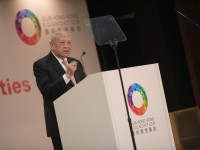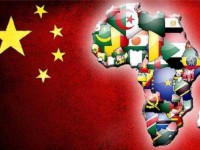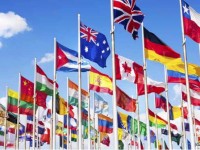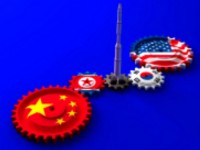
Tung Chee Hwa, Chairman Emeritus, China-United States Exchange Foundation
Dec 15, 2015
The first Chief Executive of the Hong Kong Special Administrative Region (SAR) C.H. Tung argues that the success of the modern day China is not accidental. While globalization certainly contributed to China’s rapid growth and prosperous development, what Tung describes as "China miracle" is a result of the country’s efforts to ensure a smooth leadership transition, enact sound policies, as well as of the expansion of freedom that liberated the entrepreneurial and innovative spirit of its citizens.

Dec 10, 2015
While new agreements mean the two countries areas of interest will more often overlap and even clash, there is also new impetus for cooperation, such as in preserving peace and security in Africa, developing the African market and building Washington and Beijing’s respective global leadership roles.

Yin Chengde, Research Fellow, China Foundation for International Studies
Dec 03, 2015
Competing visions, one with the UN as its spiritual center and the US counterview with itself at the heart of a unipolar world, are vying to shape the world’s future. The US remains the sole superpower in the world, but its attempt to remain the driving force in global governance is doomed to fail in a changing, multipolar world.
Doug Bandow, Senior Fellow, Cato Institute
Dec 01, 2015
China and the U.S. are waging a bitter but so far nonviolent struggle in Burma. And the U.S. appears to be winning. For Burma, opening to the West was the answer; sanctions were eased, Western leaders rushed to visit, and business investment flowed in.
Zhou Bo, Senior Fellow, Center for International Security and Strategy, Tsinghua University
Nov 24, 2015
Washington’s move to politicize this meeting simply reflects the growing frustration of a US that doesn’t know how to deal with China. This time it has taken a wrong approach to confront China at the wrong occasion. The result was not helpful in improving relations among the countries concerned.

Curtis S. Chin, Former U.S. Ambassador to Asian Development Bank
Nov 13, 2015
Should China finally move to better police both the makers and the distributors of counterfeit and shoddy products, the nation’s leaders could also take a page from California’s experiences and do more to seek to spur innovation, rather than imitation.

Doug Bandow, Senior Fellow, Cato Institute
Nov 12, 2015
Many U.S. policymakers see China as the answer to North Korean proliferation, but the People’s Republic of China has not yet proved willing to abandon its sole ally. China’s interest is almost purely negative, avoiding what the Democratic People’s Republic of Korea could become.

Yin Chengde, Research Fellow, China Foundation for International Studies
Nov 10, 2015
Britain knows that in order to propel its economy, China and other Asian economies are indispensable partners. While stronger China-UK ties signal a changing international landscape and the diminishing predominance of the United States, they also open a path for Washington and other Western capitals to boost ties with China.
Brahma Chellaney, Professor, Center for Policy Research
Nov 09, 2015
America needs to fix its Pakistan policy, which permits the Pakistani military to nurture more transnational terrorists. The policy also plays into China’s hands by helping Beijing to cement the Sino-Pakistan nexus. Pakistan is an asset for China to keep India boxed in, but a burden for America’s geostrategic interests.

Ted Galen Carpenter, Senior Fellow, Randolph Bourne Institute
Nov 04, 2015
On October 27, the U.S. Navy sent the guided-missile destroyer USS Lassen on a “freedom of navigation” patrol within 12-miles of a man-made islands.in the Spratly chain. Carpenter argues that there are less confrontational ways to pursue that objective without the kind of “in your face” challenge.
Back to Top

- China-US Focus builds trust and understanding between the U.S. and China through open dialogue among thought leaders.
- Our Offerings
- Topics
- Videos
- Podcasts
- Columnists
- Research Reports
- Focus Digest
- Stay Connected
-
Thanks for signing up!
- Get the latest stories from China-US Focus weekly.